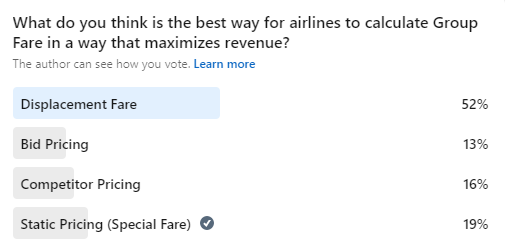For a revenue manager, there’s probably no greater joy than taking a group quote to the booking stage.
However, lacking post-booking support can and has often unraveled all the great work that the airline help desk, sales team, and revenue management professionals have put into making the passengers accept the booking and pay a competitive group fare.
Complete chaos could ensue at the drop of a hat. An airline route may get disrupted due to bad weather. A passenger may change his plans and want to travel on a different date. Another may want to make changes to their itinerary.
Pretty much anything could happen, and airlines are woefully unprepared for the massive number of group passengers flooding their support systems in need of post-booking support.
But why is that the case even though airlines spend millions on their IT systems each year?
Challenges in providing post-booking services to group passengers
Even now, group passengers’ only option when it comes to accessing post-booking support is call centers. The passengers must reach out to the call centers via phone calls or emails to raise their requests manually, and most likely, they must depend on non-airline industry professionals to help them make changes to the itinerary, cancel their bookings, or add ancillaries.
Given the time-sensitivity of these requested modifications and the huge amount of cash involved, customers can be incredibly frustrated by slow or generic responses from the airline.
Because post-booking support is still handled manually by the airline or partner call centers, they may have a hard time keeping up with support requests coming around the clock.
Also, the fact that the airline employees in the revenue, sales, or help desk team are occupied with mundane tasks, such as itinerary changes, name updating, etc., brings into question how productive they are. Additionally, airlines’ failure to quickly address cancellation or ticket modification requests can lead to poor customer experience, which will drastically affect the carriers’ ability to bring in repeat business.
However, the worst issue is the revenue leakage from airlines not being able to provide personalized ancillaries to individual group passengers once the booking has been made. Having to reach out manually for each customization of the booking may leave passengers dissatisfied and lead to the airline losing revenue by not being able to upsell special meals, pre-paid baggage, in-flight Wi-Fi, etc.
The simple fix to airlines’ post-booking woes
Providing self-service options to your customers and automating whatever is possible is the way to go for making your post-boking process a delight for customers and a revenue winner for the airline.
With the right technology partner for providing post-booking support, airlines can allow customers to make modifications on their own. If a solution like GroupRM is put in place to help with group passengers’ post-booking requests, they will be able to effortlessly change date/ flight time, upsize, downsize, split the PNR, and cancel their group bookings, requesting a refund without the hassle of going through a call center.
Besides, they will be able to use an online interface to access personalized airlines ancillary inventory, including:
- Travel Insurance
- Tour packages
- Baggage services, such as baggage claim tags, baggage insurance, etc.
- Pre-boarding, wheelchair assistance for passengers with disabilities
- Loyalty program memberships
- Lounge access
- Priority boarding
- Meals
In addition, airlines using automated technology for providing post-booking support have a major advantage when it comes to servicing group passengers during flight disruptions. They can send out automatic alerts regarding changes in flight timings or outright cancellations due to factors, such as bad weather. The group customers can easily rebook/ cancel their flights with a few clicks using channels, such as chatbots or the airline website.
Undoubtedly, this ability of passengers to access self-service throughout the year at any time of the day can lead to the airline saving substantially on support staff or call center bills.
Another area where airlines can up their post-booking game is the tedious name-updating process. Airlines can empower their travel agent or corporate customers with the ability to update all the group customers’ names on their own by bulk uploading the same without having to depend on time-consuming emails or calls. Notably, the names of the group passengers can also be modified after the booking has been made, if the airline has the right technology in place.
Conclusion
Automating and allowing for self-service when it comes to post-booking requests can bring numerous benefits to airlines. It will lead to heightened efficiency, accuracy, customer satisfaction, and cost savings, which will help airlines stay competitive in a crowded market. One solution that can help airlines to automate this process is GroupRM, a platform designed specifically for the post-ticketing needs of airlines catering to large numbers of group passengers. With GroupRM, airlines can streamline the post-ticketing process, reducing reliance on manual labor and improving the overall customer experience.
By implementing GroupRM, airlines can take a major step towards improving their post-ticketing process and better serving their customers. Reach us for a demo to learn more.











